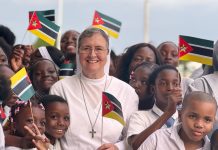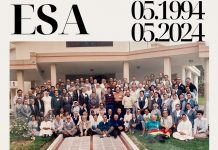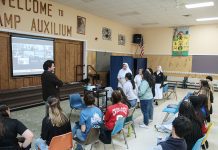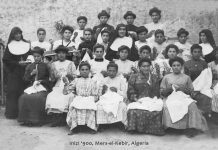Rome (Italy). At the conclusion of the Season of Creation (1 September – 4 October 2021) – annual ecumenical time of prayer and action for the common home on the theme “A house for everyone? renew the oikos of God”– the Youth Ministry Sector shared with the Provinces of the world the 2nd volume of the collection “Together we can” Integral Ecology Projects” with initiatives and processes carried out by the Educating Communities of the Daughters of Mary Help of Christians in Asia, Europe, and Oceania. The first volume, previously shared, contains the experiences of Africa and America.
The two volumes collect a total of 299 projects and initiatives, activities and processes promoted in the various educational environments – Schools, Vocational Training Centers, Higher Education Institutions, Oratories-Youth Centers, Catechesis, Family Homes, Centers for children/adolescents/young people in situations of hardship, University Residences, etc. – in favor of the Common Home and the achievement of the Sustainable Development Goals of Agenda 2030.
The purpose of the collection is to share the good achieved by the FMA Educating Communities in the different parts of the world and to foster awareness of a common journey in the commitment to respectfully safeguard the gifts received from the Creator, strengthening the formative, educational, and cultural heritage, and social issues of peoples and Countries.
13 projects and/or experiences were collected from Africa and Madagascar; 97 projects were sent from the American continent; 148 projects and initiatives came from Asia; Europe shared 36 experiences, and Oceania 5 ecological processes.
Regarding the Objectives of Laudato Si’ (OLS) for integral ecology, it can be seen that:
- 242 experiences respond to the cry of the earth, promoting reforestation, the protection and promotion of biodiversity, the care and saving of drinking water.
- 103 projects are a response to the cry of the poor with concrete gestures of solidarity. This attention shows a greater awareness of the integral vision of ecology promoted by Pope Francis in his Magisterium.
- 20 experiences express their commitment to an ecological economy and 39 concern the concrete choice of simple lifestyles. In many of the other experiences collected, however, choices have been made regarding moderation in the consumption of resources and energy, also trying to eliminate single-use plastics.
- 251 processes and experiences aim at ecological education, with the aim of creating ecological awareness, stimulating concrete action, and promoting the ecological vocation of young people and teachers, with an impact on families.
- 36 experiences promoted an ecological spirituality, encouraging greater contact with nature with a spirit of amazement, praise, joy, and gratitude.
- 92 processes have placed the emphasis on community involvement and active participation in the care of creation at different levels, promoting popular and awareness-raising campaigns, and involving ecclesial and/or civil entities and bodies.
The steps taken encourage us to continue along the path of integral ecology, looking to the future with hope, “The urgent challenge of protecting our common home includes the concern to unite the whole human family in the search for sustainable and integral development, since we know that things can change” (LS 13).





















Belíssima proposta pastoral!! Tempo de cuidar da Ecologia integral.